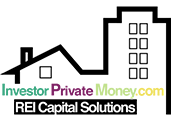NORTH CAROLINA
Frequently Asked Questions
Here are the most expensive things that can go wrong with a house or a rental property:
Damage:
- Termite
- Water
Installments/Repairs:
- FoundationRoof
- Hot water heater
- Heating/AC
- New Pipes
Removal:
- Mold
The 70% rule helps home flippers determine the maximum price they need to pay for an investment property. They should spend no more than 70% of the home’s after-repair value minus costs of renovating the property.
Flipping homes with no money down often entails being creative working with other investors, and thinking outside of the traditional loan box.
It varies depending on a variety of factors including the property acquisition costs, rehab costs, carrying costs, and financing costs. But the average cost to flip a house is about 10% of the purchase price.
A house rehab scope of work is a detailed outline of all the planned construction and renovations which are set to be undertaken.
Fix and flip financing is available from hard money lenders but not available from traditional lenders such as banks in North Carolina.
If you are thinking of flipping your house with a small budget, here are some ideas:
- Fix actual problems before worrying about aesthetics
- Focus on key areas that lend to better resale
- Do as much work as possible yourself
- Get cheap, good quality materials
- Buy tools that you will be using repeatedly rather than rent them
Yes, it is possible to use traditional home loans to flip a house. When buying a primary residence, you may be able to get funds for both a purchase and improvements using an FHA 203K loan.
Despite the decline in home flipping, these ventures are still profitable and worth pursuing. The house flipping business is one of the most lucrative ventures you can delve into for reliable income.
Banks are traditionally less expensive but they are trickier to work with and more challenging to get an approved loan whereas private lenders are more flexible and responsive.
There is a rule which limits homes to be sold for only up to 120% of the original purchase price within the first 90 days, after 90 days, you can sell the home for any amount.
For the smallest loan, at least between $12K-$15K.
Yes, you certainly can!
A general rule to qualify for refinance is that you should have at least 20% equity in your home if you want to refinance and you need a credit score of 620 or higher.
The key is your debt-to-income ratio, the percentage of your monthly income that goes to credit cards, student loans, car payments and housing payments. If the ratio is higher than 38%, many lenders will disqualify you.
It depends on your preference. Banks are traditionally less expensive but they are trickier to work with and more challenging to get an approved loan whereas private lenders are more flexible and responsive.
Taking on new debt typically causes your credit score to dip, but because refinancing replaces an existing loan with another of roughly the same amount, its impact on your credit score is minimal.
Here are six steps to refinancing your mortgage to take advantage of the potential benefits the process offers:
- Check your credit
- Determine your target rate
- Shop around and choose a qualified lender
- Watch out for high lending fees
- Be patient about signing a mortgage
- Don’t open any credit during the refinancing process
A general rule of refinancing with a cash out is that you should have at least 20% equity in your home if you want to refinance and you need a credit score of 620 or higher.
A general rule to qualify for refinance is that you should have at least 20% equity in your home if you want to refinance and you need a credit score of 620 or higher.

